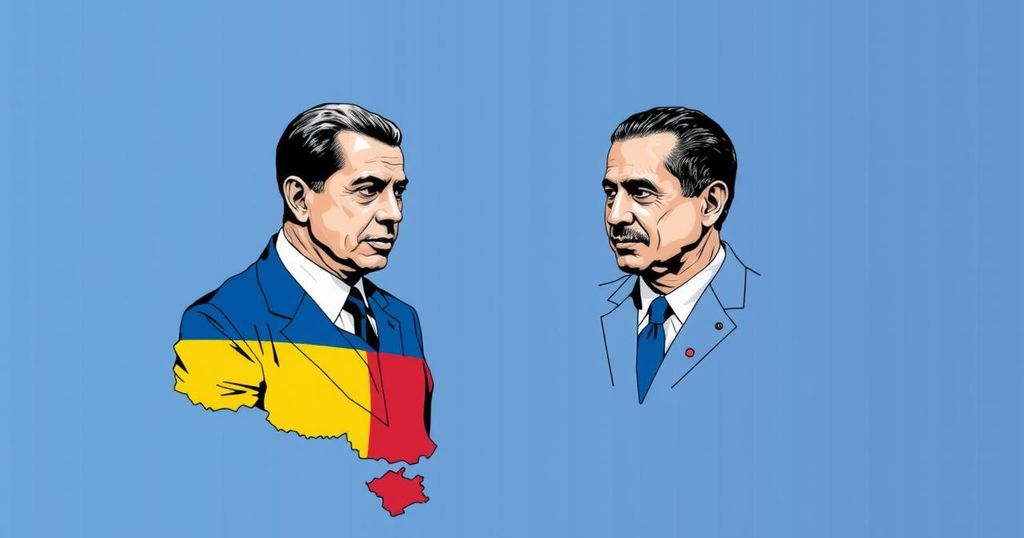US Sanctions Venezuelan Officials Amid Post-Election Crackdown

The U.S. has imposed sanctions on 21 Venezuelan officials for their roles in the crackdown on protests following a disputed July election, which garnered international condemnation. The sanctions are part of broader efforts to address human rights abuses and fraudulent electoral practices. Recent U.S. recognition of opposition leader Edmundo Gonzalez further complicates the political landscape in Venezuela, amid increased scrutiny of the Maduro regime’s legitimacy.
The United States has imposed sanctions on 21 affiliates of Venezuelan President Nicolas Maduro, citing their involvement in the suppression of protests following a disputed July election. The Department of the Treasury reported that this crackdown resulted in the deaths of at least 25 demonstrators and the arrest of more than 2,400 individuals, marking a significant effort to quell dissent. The sanctions target officials associated with the government’s repressive actions and seek to promote accountability for violations of democratic norms.
The sanctions were announced shortly after President Maduro claimed victory in the July 28 presidential election, despite wide-ranging allegations of electoral fraud from both opposition parties and international observers. Notable among the critiques was a statement from The Carter Center asserting that the election failed to meet established international standards for electoral integrity, deeming it undemocratic. Following the election, the opposition declared Edmundo Gonzalez as the legitimate president-elect and published evidence they claimed proved their assertion.
The Biden administration’s recent recognition of Gonzalez as the legitimate leader of Venezuela adds another layer of tension, although the impact of these sanctions remains uncertain. The State Department categorized the newly sanctioned individuals as members of security forces and cabinet officials who contributed to the undermining of a fair electoral process. Furthermore, they described the Maduro regime’s actions, which include killings and widespread detainment during protests, as systematic abuses against the populace.
The ongoing international isolation of the Maduro government has persevered since July’s election, with regional leaders, once ambivalent, now signaling skepticism regarding Maduro’s legitimacy. In light of these developments, the international community’s subsequent scrutiny may further isolate the regime unless it addresses the growing allegations of electoral misconduct and human rights abuses. Gonzalez, facing legal persecution back in Venezuela, has sought refuge in Spain as the landscape for the opposition continues to evolve under these oppressive conditions.
The sanctions against Venezuelan officials stem from their alleged roles in the suppression of protests following a contentious presidential election. On July 28, President Nicolás Maduro claimed to have won a third term in office despite claims of significant electoral fraud. These developments led the U.S. government, among others, to denounce the election results and impose sanctions aimed at holding accountable those implicated in repressing dissent. The larger implications of these sanctions and the responses from regional leaders further illustrate the complex political climate in Venezuela, emphasizing ongoing disputes regarding the legitimacy of governance under Maduro.
In summary, the U.S. sanctions against Venezuelan officials reflect ongoing international concern regarding human rights violations and the integrity of democratic processes in Venezuela. The condemnation of the July election results amplifies the dissent against Maduro’s administration and highlights the struggle for legitimacy faced by the opposition. As the situation continues to unfold, potential impacts on both domestic and international fronts remain a critical area of observation.
Original Source: www.aljazeera.com








